
The 1930 FIFA World Cup was the inaugural FIFA World Cup, the world championship for men's national football teams. It took place in Uruguay from 13 to 30 July 1930. FIFA, football's international governing body, selected Uruguay as the host nation, as the country would be celebrating the centenary of its first constitution and the Uruguay national football team had successfully retained their football title at the 1928 Summer Olympics. All matches were played in the Uruguayan capital, Montevideo, the majority at the Estadio Centenario, which was built for the tournament.

Club Atlético Peñarol, more commonly referred to as Peñarol and also known as Carboneros, Aurinegros, and (familiarly) Manyas, is a Uruguayan sports club based in Montevideo. The name "Peñarol" comes from the Peñarol neighbourhood on the outskirts of Montevideo. Throughout its history the club has also participated in other sports, such as basketball and cycling. Its focus has always been on football, a sport in which the club excels, having never been relegated from the top division. The club traditionally plays in yellow and black-striped shirts.
Football at the 1924 Summer Olympics was the sixth edition of the football tournament at the Summer Olympic Games held in Paris.

Héctor Pedro Scarone Berreta was a Uruguayan footballer who played as inside forward. Known as "the Gardel of Football" and El Mago due to his extraordinary skills with the ball, Scarone was considered one of the best players in the world during his time. He was crowned world champion three times, after winning the editions of the 1924 and 1928 Olympic football tournaments, along with the first World Cup in 1930.
The 1967 South American Football Championship was won by hosts Uruguay, with Argentina finished second. Brazil and Peru withdrew from the tournament. It was the first tournament in which Venezuela participated.
The 1959 South American Championship held in Ecuador was an extra South American Championship for the year. The tournament was contested between five teams; Bolivia, Chile, Colombia, and Peru did not participate, whilst Brazil attended with a team from Pernambuco. Uruguay won their 10th South American title.
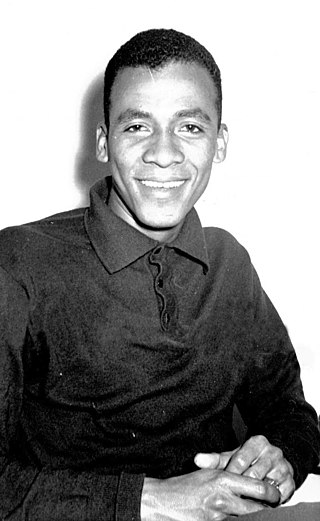
Alberto Pedro Spencer Herrera was an Ecuadorian footballer who played as a forward, and is widely regarded as one of the best Ecuadorian men's footballers of all time. He is probably best known for his still-standing record for scoring the most goals in the Copa Libertadores, the premier club tournament in South America. He was elected the 20th best South American footballer of the 20th century in a poll by the IFFHS in 2004. He was known as "Cabeza Mágica".
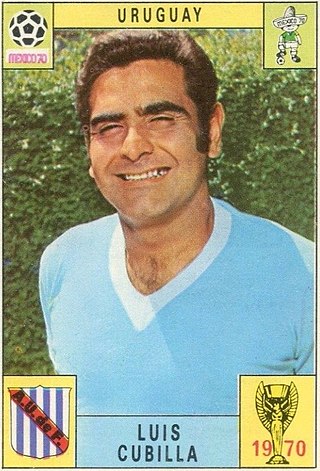
Luis Alberto Cubilla Almeida was a Uruguayan professional footballer and manager. He had a successful playing career winning 16 major titles. He then went on to become one of the most successful managers in South American football with 17 major titles.

José Pedro Cea Urriza was an Uruguayan football player as a striker and coach.
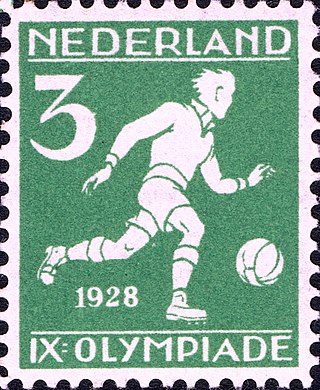
Football was one of the tournaments at the 1928 Summer Olympics. It was won by Uruguay against Argentina, and was the last Olympic football tournament before the inception of the FIFA World Cup, which was held for the first time in 1930. This edition, along with the preceding 1924 edition, were the only tournaments in history outside of the World Cup that count as Senior World Titles equivalent to the World Cup.
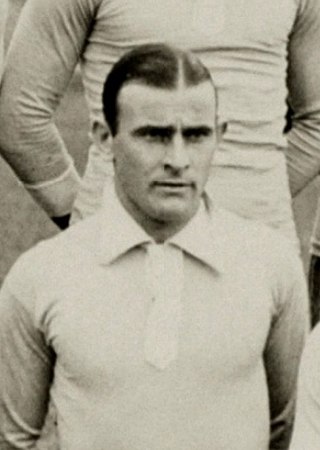
Pedro Petrone Schiavone was a Uruguayan footballer who played in the role of striker. His nickname was Artillero, meaning artilleryman or gunner, in reference to his amazing goalscoring prowess.

Lorenzo Fernández, nicknamed El Gallego, was a Spanish-born Uruguayan footballer. During his career, he played for Capurro, River Plate, Montevideo Wanderers FC and C.A. Peñarol. Fernández also played 31 times and scored 4 goals for the Uruguay national football team, with which he won the 1930 FIFA World Cup, the gold medal at the 1928 Summer Olympics, and the 1926 and 1935 Copa Americas. A center-half in the 2–3–5 footballing system, he once replaced Pedro Cea as an inside-left forward against Peru during a match in 1929 South American Championship and went on to score a hat-trick.

Pedro Virgilio Rocha Franchetti was a Uruguayan footballer who played 52 games for the Uruguay national team between 1961 and 1974.

Juan Pedro Arremón was a Uruguayan football player. He competed in the 1928 Summer Olympics and played club football for Peñarol.

João Pedro Geraldino dos Santos Galvão, commonly known as João Pedro, is a professional footballer who plays as a forward or an attacking midfielder for Brazilian club Grêmio, on loan from Turkish club Fenerbahçe.
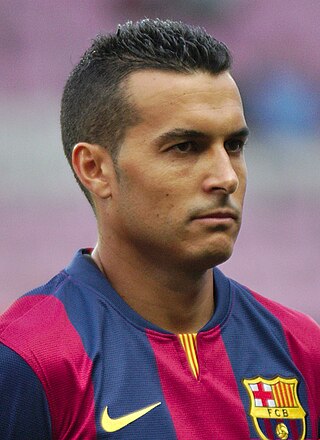
Pedro Eliezer Rodríguez Ledesma, known as Pedro, is a Spanish professional footballer who plays as a winger for Serie A club Lazio.
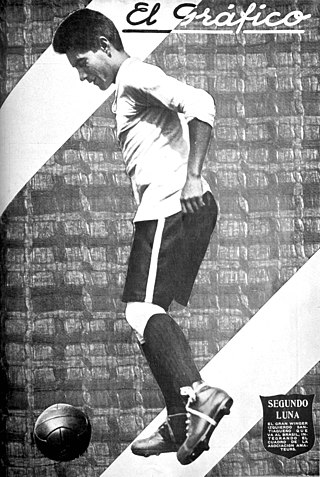
Segundo Luna was an Argentine footballer, born in Santiago del Estero, Argentina. He was the first Santiagueño to play in Argentina's national football team as well as the first to play in an international tournament. Luna's team finished second in the Athletic Club Students Cultural Football League. He then joined the international football team in 1927, the year before the Olympics in Amsterdam. His first tournament was the 1927 South American Championship, in Lima, Peru, where Argentina qualified for the 1928 Olympics. The name 'Segundo Luna' means 'Second Moon' in Spanish.

Jonathan Javier Rodríguez Portillo, commonly known by his nickname Cabecita, is a Uruguayan professional footballer who plays as a forward or winger for Major League Soccer club Portland Timbers and the Uruguay national team.

The 1914 Tie Cup Final was the final match to decide the winner of the Tie Cup, the 4th. edition of the international competition organised by Argentine and Uruguayan Associations together. As its previous editions, the final was contested by Argentine club River Plate and Uruguayan club Bristol F.C. in replacement of Nacional, as runner-up.















